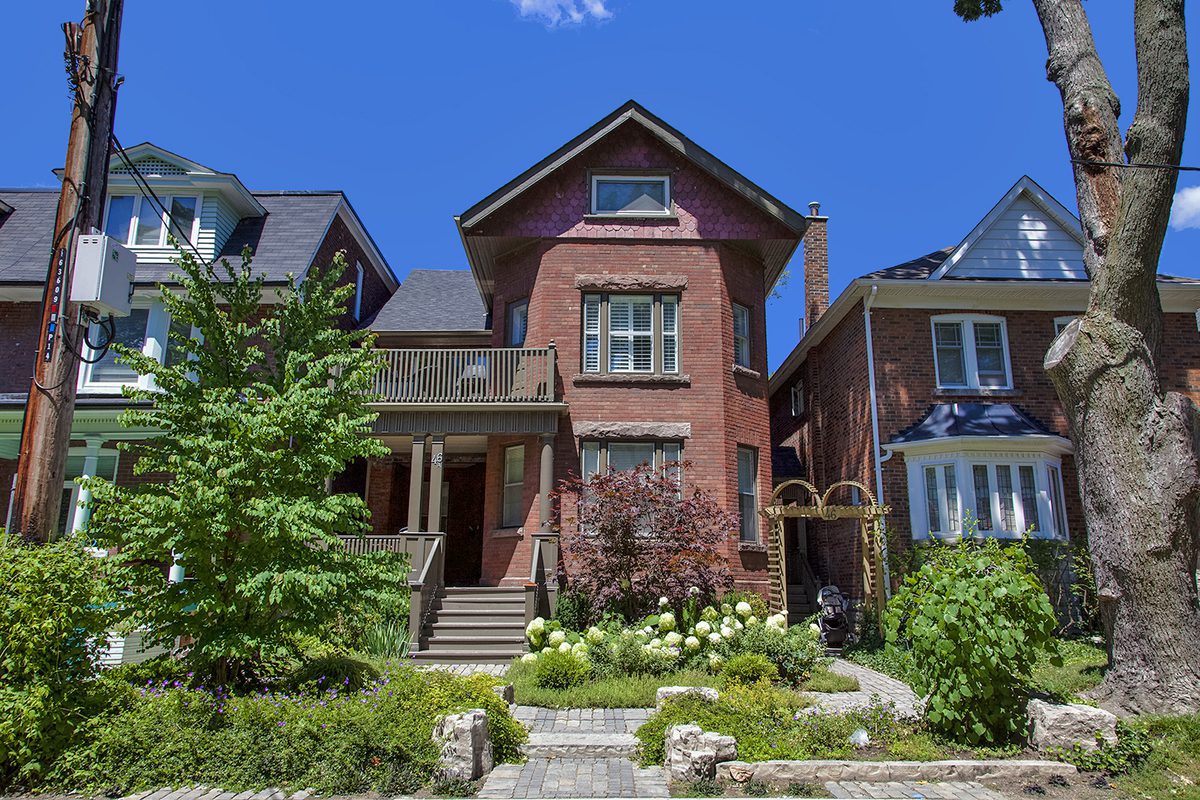Rent-to-own contracts for major household equipment such as hot water tanks and HVAC systems (furnaces and air conditioners) may seem like a good idea initially. Monthly payments to rent can be affordable and lower than the cost of buying big ticket appliances outright. But beware that rental contracts often make it difficult to sell a house to prospective buyers.
This is because people looking to a buy a house don’t want to take on rental contracts signed by the previous homeowner, and there is an expectation that the sale price of a house includes everything in it – from the fridge and stove to the furnace and hot water tank. Trying to convince potential buyers to take over a rental contract on a furnace or other expensive appliance can prove to be a deal breaker. And paying to get out of a rental contract, many of which run for five years or longer, can be costly.
Doing the math
The most common type of equipment rental in a home is a hot water tank. In many instances, hot water tank rental contracts come with newly built houses. Builders rent the hot water tank during construction and then pass the rental contract onto the homebuyer. In rural areas, some gas companies will not provide propane to a residential house unless the homeowners’ rent a hot water tank from them. But be advised that the cost to rent a hot water tank can be expensive over the long-term. Monthly rental costs are typically $30 to $55. And the length of contracts range from 60 months (five years) to what’s known as the “useful life” of an appliance (between 14 and 18 years).
Do the math and the rental fees add up to a substantial amount. Paying $40 a month to rent a hot water tank, for example, will end up costing you $2,400.00 after five years and a whopping $6,720.00 after 14 years. Consider that to purchase a brand new hot water tank at Home Depot costs between $600.00 and $1,000.00, and it becomes painfully obvious that renting a hot water tank is expensive over the long-term. At a minimum, you’ll likely end up paying more than double the cost of buying a new hot water tank.
Other major household equipment such as furnaces and air conditioners can also be expensive to rent. According to the website FurnacePrices.ca, renting a furnace in Canada typically costs between $50 and $90 per month. And the rental contracts usually run for seven, 10 or 15-year terms. Rent a furnace for $75 a month over 10-years, and you’ll end up paying a total of $9,000.00. That’s nearly double the average price of $4,800.00 that it costs to buy a new, high-efficiency furnace. While monthly air conditioner rentals tend to be lower ($25 per month on average), they too can add up over many years.
Even if you don’t do the math yourself, you can bet that cost-conscious house hunters will be doing the calculations on what it will cost to purchase your house. And extra, often unexpected, bills such as equipment rental fees can be a turnoff. House purchase contracts can stipulate that you, the current owner, must get out of any and all rental agreements prior to the house sale being finalized. This too can be expensive.
Breaking a rental contract
Most rental contracts are ironclad and designed to ensure that the rental company gets their money one way or another. This means that, should you want to get out of a rental contract before the term ends, you will have to pay the balance owing in full. In the case of extremely long contracts (10 years or more); you might have the option of breaking the contract after five or seven years. Be sure to read the fine print. At the very least, you’ll likely have to pay the cost of purchasing the equipment outright.
You should also be aware of tricks that rental companies play with homeowners when it comes to breaking a contract. For example, while your furnace may be three or four years old when you decide to get out of a rental contract, the company renting you the equipment may charge the cost of purchasing a brand new furnace. Rental companies may also fail to deduct the cumulative total of the monthly payments you’ve made on a furnace, hot water tank or air conditioner and instead charge a lump sum that’s over and above the monthly amount you’ve paid to rent the equipment.
Many agreements also require homeowners to use the rental company for annual maintenance of a furnace, hot water tank or air conditioner. Miss a scheduled maintenance appointment, and the rental company could use it as an excuse to not allow you out of a contract, or to charge you additional fees should you break the deal.
Pay close attention, as some of these tricks can violate a rent-to-own agreement. Some Canadian provinces, such as Ontario, have passed legislation to prevent rental companies from engaging in deceptive practices that cost homeowners big bucks in fees and penalties. Under Ontario’s Consumer Protection Act, 2002, unsolicited door-to-door marketing and contracting for water heaters and HVAC equipment is banned. And, as of March 1 this year (2018), suppliers in Ontario are required by law to provide a cover page with contracts for major household equipment that spells out the rental agreement details and penalties involved with breaking a contract.
When in doubt, do your homework and consult a qualified realtor or lawyer concerning a rental contract and the costs involved in getting out of one.
What you can do to protect yourself
The best way to avoid expensive rental contracts for major equipment such as furnaces, hot water tanks and air conditioners is to not agree to them in the first place. Whether you’re purchasing an old or new house, be sure to check and see if it comes with rental agreements. Negotiate to have rental contracts removed as a condition of you buying the house. Even with a new house, talk to the builder and make sure that all the equipment comes fully installed and is included with the purchase price. Don’t let the builder stick you with a rental contract that will become a financial albatross in the long run.
A realtor can help. Licensed realtors are knowledgeable about the building industry as well as the housing market. They understand how equipment rentals and rent-to-own contracts work, and the ways in which they disadvantage homeowners. They also know the tricks that can be played by rental companies and how to avoid losing hundreds or thousands of dollars in unnecessary penalty fees. Remember that a realtor works for you and safeguards your interests when it comes to selling a house. They’re on your side, not the rental companies’ side.
JO00KV




